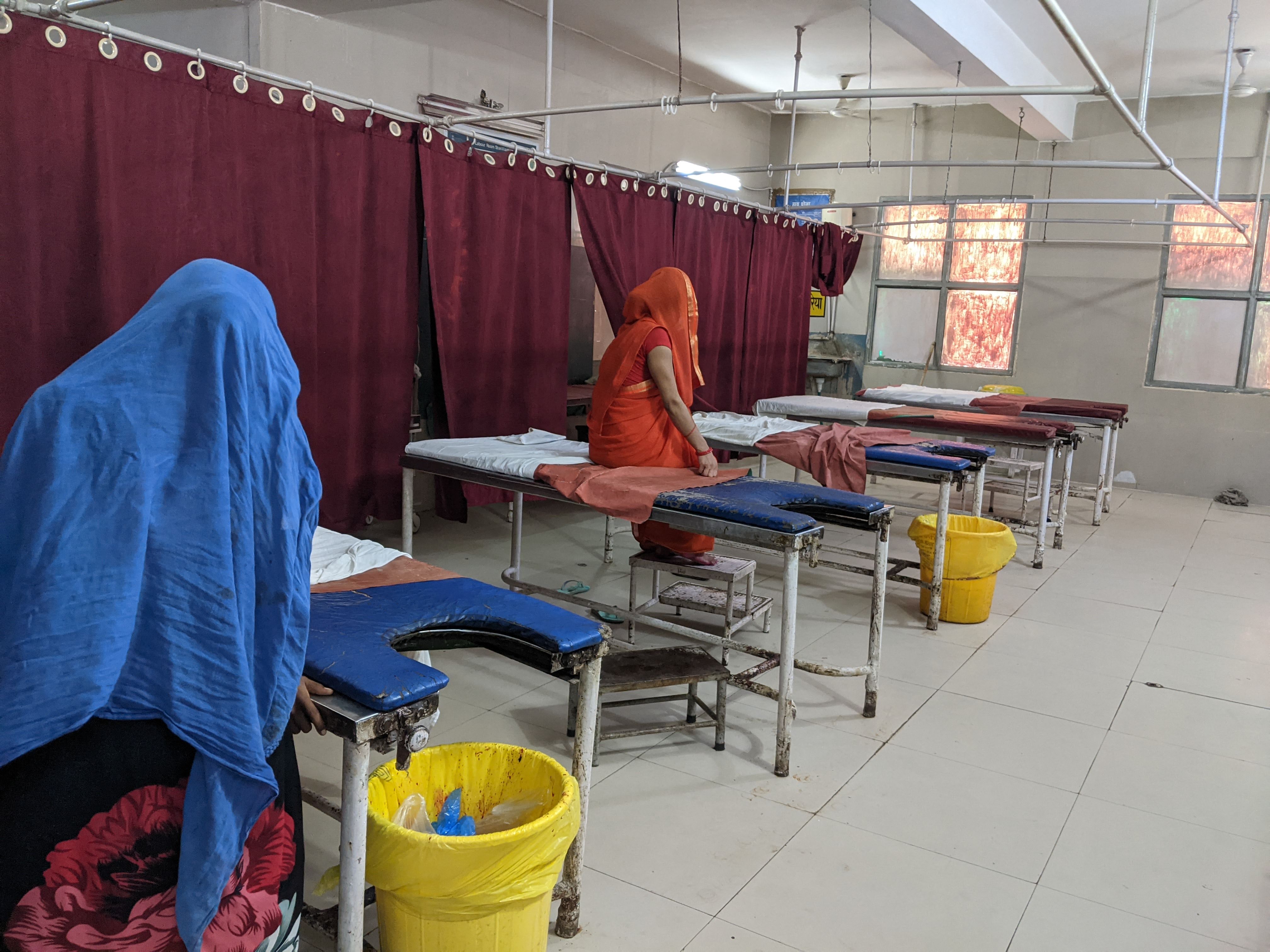- Authors: Payal Hathi and Nikhil Srivastav
- Published in: Economic and Political Weekly
- Download Paper
Abstract
In light of India’s continuing efforts to reduce maternal mortality and make childbirth safer for women, this article explores why government hospitals continue to be dangerously unhygienic, posing serious risk of infection to patients in maternity wards and labor rooms. Through interviews with cleaners and other health staff, and observations at district level hospitals and PHC/CHCs in Uttar Pradesh, Bihar, and Madhya Pradesh, we find that unhygienic practices and behaviors by health staff abound, leading to an environment with high potential for infection. Deep caste prejudice against cleaners, who continue to come from marginalized Dalit communities, prevents the professionalization of their work. This, in turn, leads to a lack of hygiene as casteist notions of what is clean and unclean influence the way that infection is understood and infection control is implemented. The discrimination cleaners face means that they are the least trained and least supported hospital staff, overburdened and underequipped to maintain the high standards of hygiene required to promote patient wellbeing. Rather than addressing these deeper issues, antibiotics are routinely prescribed as a shortcut to dealing with the risk of hospital infection, potentially contributing to increases in antibiotic resistance in the long run.

